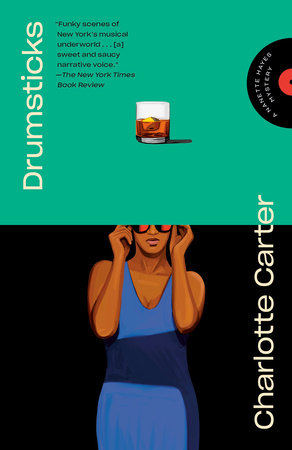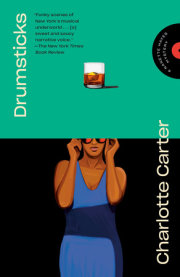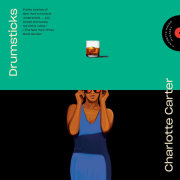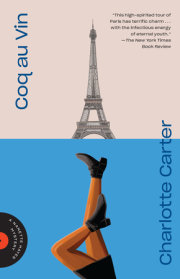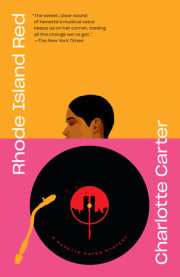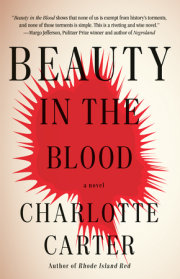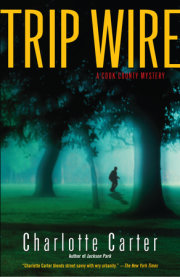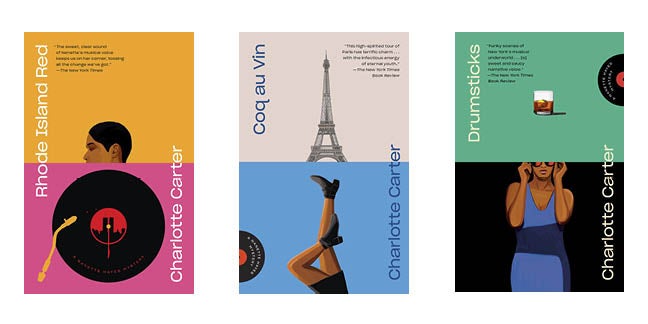CHAPTER 1
’TIS AUTUMN
“Uh . . . Nan? I think we need to go home now.”
I stood with my hand on my hip, knocking over several drinks. I looked at him—my little date—with supreme scorn. “Your hands off me, yutz. You go home if you want. Ima have another drink.” I know I must’ve looked ferocious, because a couple of women on the sectional sofa started clawing at the coat sleeves of their men.
“You’ve had enough, Nan. Let’s get your coat.” He sounded like Richard Pryor doing his uptight-white-guy accent.
I won’t recount what I said to him then. It would make me too ashamed. Just know it was filthy and cruel and utterly uncalled-for. I didn’t know I had that kind of poison in me until I heard it rolling off my tongue.
That guy shrank away from me, gasping like a Sunday school teacher in a Storyville whorehouse. I had humiliated his ass in front of his friends—well, I’m guessing they were his friends. Maybe, even worse, they were his colleagues from work, whatever work he did. The truth is, I don’t remember what he did for a living; I don’t remember what he looked like, except that he was a tall black man who wore nice shirts; and I don’t remember whose apartment we were in, because, see, I was drinking pretty heavily then, and had been for months.
And hey, as long as I’m being honest here? To say I was drinking “heavily” is kind of a laughable understatement. The fact is, I was drinking suicidally.
To his credit, my date, whoever he was, turned out not to be such a wimp after all. When my vile, party-killing monologue was over, I began to wend my way back to the table where a gorgeous young sister in dreadlocks and a white apron was serving the drinks. I never made it back there. Before I knew what was happening, my man had a hold of the neck of my shirt. I was thrown out of the front door so hard that I bounced off the back wall of the waiting elevator, landing on my butt. A split second later, my brown suede jacket came sailing in after me, looking for all the world like Rocky the Flying Squirrel.
I cussed all the way down to the lobby, where I stumbled past the tight-lipped doorman, who had undoubtedly watched the whole episode on his security monitor.
It was a Saturday night. I remember that because of all the strolling couples. The ones I looked at with such hatred. The ones whose heads I wanted to saw off because they looked so fucking happy together.
How dare they be happy! How dare they! I wished I had my gun.
And a drink. I wished I had a drink, too.
I’m not trying to paint myself as a badass or anything—this stuff was nothing to brag about. I was out of control and I knew it.
It had started as a severe post-affair depression last spring, when I returned from Paris. It simmered and deepened over the ugly New York summer, during which I scratched out a living by day—playing my sax long hours on the street and picking up tutoring or translation jobs here and there—and kept to myself at night. I sought the company of no one except for my best friends, Mr. Gin and Ms. Tonic. I kept the answering machine on all the time but rarely returned any calls. Too scattered to read, too listless to write, no hanging with friends, only obligatory contact with my mom and my oldest friend, Aubrey, to let them know I was still alive.
The cooler weather meant a switch to bourbon. In the month of September I drank, if not a river of whiskey, then certainly a major tributary. I also acquired a weapon.
A neighbor of mine had been raped over the Labor Day weekend. The cops thought the guy was responsible for a string of attacks farther uptown as well. In the grip of spiraling nihilism, I purchased an illegal piece, figuring that if he came after me, I’d be the last episode of his series, because I was going to cancel his ass. I fully realized the bastard just might take me with him. But if it came to that—so be it.
I knew a conga player, Patrice, from Haiti, who had kind of a thing for me. Lovely man, but we never quite got our riddims together, to use his words. He had a cousin who specialized in putting people together with the right weapon. Patrice and I made a night of it. He took me first to a Filipino meal on First Avenue; next, to a new club on Avenue A, where a group with a sensational tenor opened for a rising male singer; and last, working our way steadily east, into the bowels of a red brick building on Avenue D.
The cousin, whose name was never mentioned, was one scary fella. But when I emerged onto the street again, I was the proud owner of an only slightly used little Beretta, which, I was told, a former policewoman had traded for heroin. It fit neatly into my hand but was guaranteed to have the punch of a much meaner piece. And, as a bonus, seeing as how I was Patrice’s bitch, I was fixed up with regular as well as hollow-point ammo.
Luckily for the both of us, they caught the rapist.
I was walking around in perpetual gloom or hostility or sourness, no gratitude for life and no taste for living. Nothing moved me. And I mean nothing—not the most beautiful tenor solo I heard on the radio, not the heavenly gold and flame that anointed the parks and gardens, not even a good hamburger. My impersonation of Lady Hardass went on. Tough Nan and her beat-up saxophone. She didn’t like the way things were, but she bit down on the loneliness and took it like a man.
My friend Aubrey had not given up on me completely; of course not. But she was damned tired of my self-destructive nonsense. We spoke on the phone but seldom got together for dinner or going out to visit my mother—or anything. On the rare occasions when we did meet, we just seemed to get on each other’s nerves.
And so November rolled around. I was still depressed, and more evil than ever. I knew it was sheer self-indulgence. But what could I do? And then, one night, I met this guy at a club—I think that’s where I met him—and tried to take some solace in a fling with him.
Cut to: that jive party in that deluxe high-rise building, that Saturday night when I went way over the top.
Understand, Mr. and Mrs. Hayes did not raise any heathen daughters, and as a person of some refinement, I was unaccustomed to being asked to leave people’s homes, let alone being hauled out by the scruff of my neck and tossed into an elevator like I was a crate of lettuce that had gone bad.
Yet I knew I deserved what that guy did to me—and worse. I had behaved abominably.
I got out into the brisk November air, a hint of winter in the wind, and I saw those couples in their big sweaters strolling with their arms around each other. And laughing—that’s what really got to me—their sweet, exclusionary laughter. They were done with their little dinners in their little trattorias. They were coming home from the movies. Stopping off for fucking decaf espresso. Going to hear music somewhere where the lights were low. I wanted to kill somebody.
But of course that isn’t what I wanted at all. Just the opposite. To be precise, I wanted Andre, the man I had found and then parted from in Paris.
I zipped up my jacket and crossed the street, hurrying up the block and out of the sight of the doorman, now regarding me as if I belonged in a zoo. I barely made it into the doorway of the shuttered cigar store before the dam burst. I broke down and began to sob helplessly. I cried in the way I’d been trying to cry for months, but somehow had not been able to. Mouth wide open, screaming almost, testifying. Snot on my chin. The whole nine yards. I cried so hard and so long that I gave myself a nosebleed.
Scenes like this were regular occurrences in the city: some poor soul, usually a woman, crying her heart out, publicly, past all embarrassment. The pain is almost tangible. You get a sharp, sudden pang of empathy in your throat. You want to cry, too. You start hurting, too. But you don’t stop, you don’t interfere, you keep walking. And now the poor soul was me; I was the one on display.
Nobody paid me any mind.
At last the storm was over. I was exhausted. I was ravenous. And I was still very sad. But, oddly, I felt a whole lot better. I walked a couple of blocks north and found a no-name diner. While my BLT was being made, I went into the ladies’ and cleaned myself up as best I could.
I polished off my sandwich in no time and had a stale cookie with my third cup of coffee. Lord, I thought, I hope this is rock bottom—Saturday night, alone in a Greek coffee shop where the most attractive man in sight was gumming a roll that he kept dipping in his watery chicken soup, and me with bloody snot on my good coat and my face looking like a hot air balloon in the Macy’s parade. I hope there’s nowhere to go but up from here.
It was nearly 2 a.m. when I left the diner. For a brief moment I thought of going back to the party to apologize for my behavior. I quickly scotched that idea. I just knew I didn’t want to go home yet. The thought of walking into my empty apartment just then was unbearable. Besides, I owed apologies to somebody else.
I jumped into the first taxi I saw, thanking my stars the cabbie was Indian. They usually pick up black people when nobody else will and it was two in the morning and I looked like I lived under the Brooklyn Bridge.
Under ordinary circumstances the last place on earth I’d want to be at 2 a.m. was Caesar’s, the club where Aubrey dances with her tatas hanging out six nights a week. Under ordinary circumstances that loser Greek diner would be preferable to Caesar’s Go Go Emporium. But tonight its gaudy neon lights were like a beacon of hope lighting up that bleak patch of Sixth Avenue.
Aubrey was on and it was a full house. Like always, the men were enthralled, loving her moves, eyes riveted on the stage.
I made my way over to the bar, where I saw Justin, the manager, settling in on his reserved barstool. He smiled at me and elbowed a customer off of his stool so that I could sit next to him.
“God amighty!” he said, getting a good look at me. “I hope you caught the license number of that truck.”
“I know, I know” was all I said.
“Did you get mugged or something?”
“No, I’m all right.”
“Where have you been all this time, Smash-up? Ugly School?”
I laughed in spite of myself, shaking away the runaway tear that was creeping down my nose, and he put a consoling arm around my shoulders. He shook one of his stupid-long cigarettes at me and I took it gratefully.
“Well, even in your bag-lady drag, it’s good to see you.”
“I’ve been lying low. Emphasis on ‘low.’ ”
“You got some troubles, right?”
“It’s a long story, Justin. And you’ve heard it a thousand times before. Only the names change.”
“Oh, that. Say no more, child. Mens! Can’t live with ’em, can’t chop their pricks off.”
He bought me a brandy over my protests that I’d had enough to drink.
We fell silent for a time, until he commented, “Aubrey’s still number one,” he said, his eyes following her gyrations. “Girl’s looking fabulous tonight.”
I nodded, and echoed, “Fabulous. And you, Justin. How are you?”
“Little me?” He turned the smile up a notch, then not so much said as sang, “Met somebody noo-hoo.”
“No kidding? That’s terrific, J.” He did look exceptionally happy.
“Still playing your jazz music, Smash-up?”
“Yeah. Still playing. Lot of tourists around this summer. I made out pretty good. I’ve got to hustle up some kind of steady income soon, though.”
“We can always put you in a wig and you can wait tables here. With that shelf of yours, the tips would be awesome. Maybe you could work up some kind of topless routine with your sax. Who knows, darling? Anything goes.”
That made me think. Yes, there was a famous lady cellist who played topless. Was the world ready for a topless lady saxophonist? It would sure as hell secure my place in the annals of jazz.
“I’ll give it some thought,” I said. “How long do you think it’ll be before Aubrey’s done?”
“A few minutes. Listen, why don’t you go backstage to wait for her? I’ll be back there in a few minutes.”
I grabbed my drink. “Thanks. See you later.”
It was nice and warm back in Aubrey’s room. I sipped my brandy and picked up her pack of Newports but threw it back down again with a snort of distaste.
I sat at her dressing table and surveyed the damage in the oversized mirror. Yeah. Ugly School. Top of the class. Makeup wasn’t going to help much, but I picked up one of Aubrey’s lipsticks and began to apply it.
No, I was right; it wasn’t helping. Soon I had drawn a pair of terrifying clown lips over my mouth. I popped my eyes wide and sang in falsetto: “Everybody dance now!”
I broke into crazy laughter then. It mounted higher and higher, until I became aware that someone else was in the room.
I heard the lifeless greeting: “Hey.”
Aubrey was standing behind me, staring at my reflection in the mirror. I whirled around to face her.
“Jesus, Aubrey, I’m sorry. I mean, not just for this. I mean I’m sorry period. About—you know—how I’ve been.”
She stared impassively at me for another few seconds, and then she, too, began to laugh wildly.
I gave her the short version of my earlier humiliation, replete with the frightened women on the sofa and the suede jacket landing on my face. As I should have known, she found that hilarious, too.
Justin found us collapsed in each other’s arms.
“What’s going on back here, girls? Can I get in on this riot?”
“Yeah, you can,” Aubrey said. “You know the party don’t start till you come.”
He put his crazy cigarette down on the edge of the nearest surface, and then, with a devilish grin, revealed the object he had been concealing behind his back. “This is for you,” he said, looking directly at me. “Happy birthday, Smash-up.”
Copyright © 2021 by Charlotte Carter. All rights reserved. No part of this excerpt may be reproduced or reprinted without permission in writing from the publisher.

